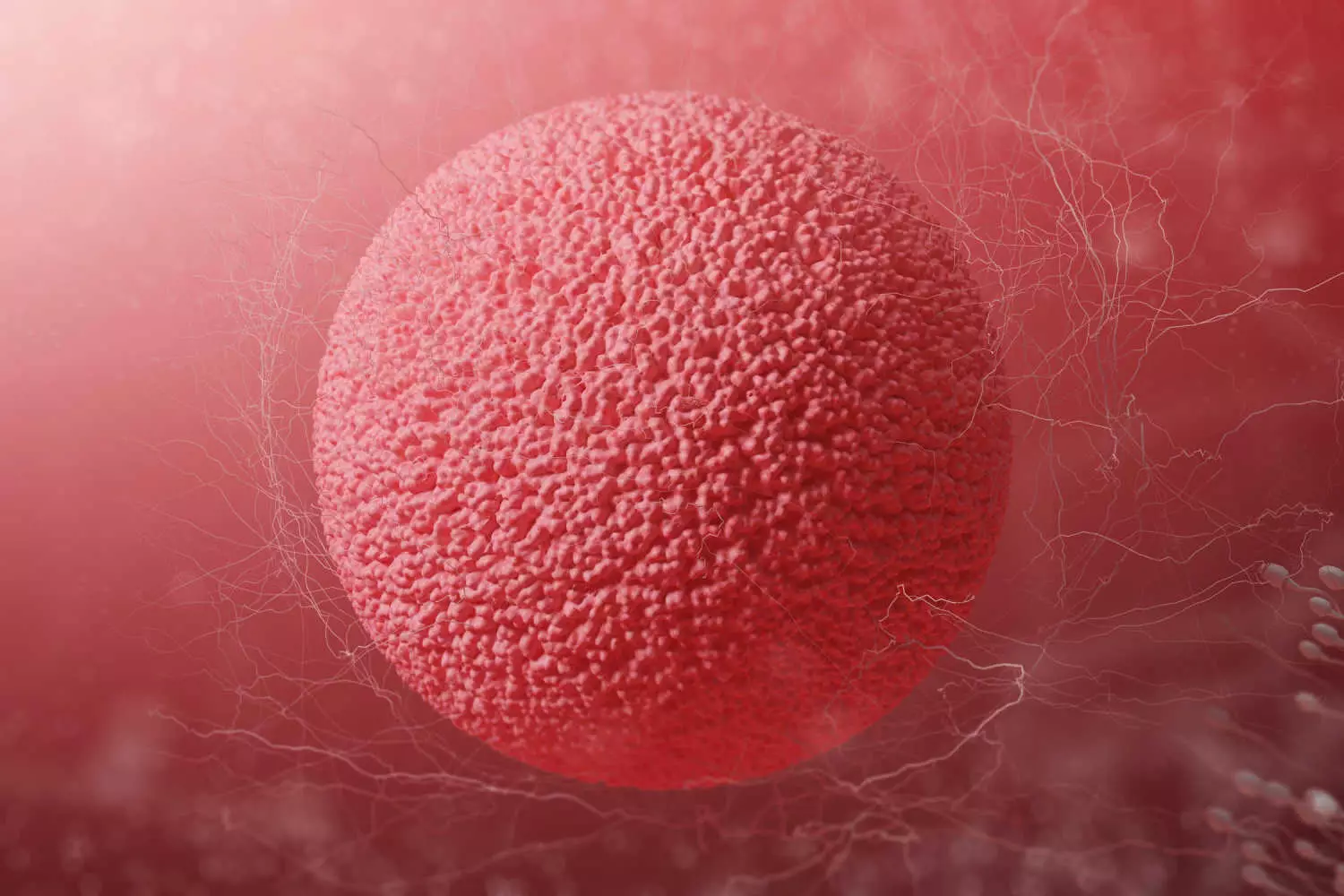
Do Fertility Treatments Like IVF Cause Cancer?
6 min readWritten by Editorial Team


Nowadays infertility is on the rise. As a result of this, a lot of women are undergoing fertility treatments, and are taking fertility drugs to help them conceive. But the use of these fertility treatments including IVF comes with its own share of fears.
Some women undergoing these treatments fear the chances of having a healthy baby, whereas, some are worried about the possibility of having multiples and top it all now there is a buzz about these fertility treatments increasing the risk of breast or uterine cancer. But do fertility drugs really cause cancer? Let us find out the possibilities and probabilities.
In This Article
- Do Fertility Drugs Cause Cancer?
- Do IVF Treatments Increase The Chances Of Cancer?
- Are Fertility Treatments Linked To Cancer?
- What Are The Long-Term Side Effects Of Fertility Drugs?
- Useful Tips For Women Using Fertility Treatments
- FAQ’s
Do Fertility Drugs Cause Cancer?
One of the most successful ways to treat infertility is with drugs. The drugs basically:
- Bring about ovulation in women by raising their estrogen levels temporarily.
- They help the ovaries to produce eggs by providing follicle-stimulating hormone.
- They stimulate the egg growth with a combination of follicle-stimulating hormone and luteinizing hormone.
But do these fertility drugs cause cancer?
- There is no evidence that fertility treatments cause cancer, but it should also be noted that estrogen has a significant impact on breast cancer. Therefore, as most of the drugs for treating infertility increase the estrogen level temporarily, fertility treatment can lead to an increased risk of developing cancer. That is why it is imperative for a woman suffering from infertility to go for follow-up consultations.
- Similarly, if a woman is diagnosed with endometriosis, it is important for her to have regular follow-ups with her doctor, just to be on the safer side. Also, those suffering from PCOS should regularly get themselves checked because PCOS may increase the risk of developing endometrial, breast, and ovarian cancers.
- Also a popular fertility drug, Clomid was speculated to increase the risk of uterine and ovarian cancer. But it is revealed in recent studies that this is just a rumor and the ovulation stimulating drug Clomid is safe to use and will not increase the risk of cancer.
Do IVF Treatments Increase The Chances Of Cancer?

IVF is a medical technique whereby an egg is implanted into a female after being fertilized by sperm either in a test tube or elsewhere outside the female’s body. Here also, the treatment requires temporarily increasing levels of certain hormones to 5 or 10 times the normal level. Some studies reveal that IVF cannot increase the chances of cancer. However, it does not rule out the likelihood that breast cancer might turn up in a larger group of women tracked more closely for a prolonged period.
It is also believed that the causes of infertility itself, not only its treatment, might somehow be linked to breast cancer and ovarian cancer. Several studies that have been recently conducted on side effects of fertility treatment have discovered that women who go through IVF treatment rank third among those who have the likelihood of having ovarian cancer and show a tendency for an early onset of breast cancer.
Are Fertility Treatments Linked To Cancer?
For an accurate result, the researchers should look into the dosage of the fertility drug consumed by the women and the duration of using fertility drugs. They should also take into account whether those women who took the maximum dosage for a long time are at greater risk of having cancer or not. However, this kind of information has not been constantly collected and covered in the studies. Hence, the result of these studies cannot be entirely accepted and it cannot be concluded that fertility treatments may or may not increase your risk of developing breast or uterine cancer.
Another question faced by the researchers in this field is the cause of infertility. Some of the issues that lead women to seek fertility treatment can also be a risk factor that increases their chances of having breast cancer or ovarian cancer. While more research needs to be done on this, for now, fertility treatments and drugs are off the hook.
IVF and Ovarian Cancer
According to previous studies, women who use assisted reproductive technologies (ARTs) such as IVF to get pregnant may be at risk for ovarian cancer and nonmalignant borderline tumors because women undergo multiple punctures that damage the ovary, and also a high level of sex hormones have to administer to stimulate the ovaries.
During IVF, eggs are surgically removed from a woman’s ovaries, fertilized in a lab, and then placed in her uterus. In a recent study, however, the researchers found that not only does IVF not contribute to ovarian cancer, but even women who have successfully given birth to a greater number of children after ART had a significantly reduced risk.
IVF And Endometrial Cancer Risk
In young women with repeated IVF failures, endometrial cancer can be detected at hysteroscopy. Despite some studies showing an increased risk of endometrial cancer in women taking specific fertility medications, most studies have not found this connection.
Borderline Ovarian Tumors and IVF
Malignant potential is low for borderline tumors. Borderline tumors don’t spread to surrounding tissues the way invasive, or metastatic, cancers do. Despite growing and requiring surgical removal, the tumors do not require chemotherapy or result in death. During IVF, ovarian stimulation may cause ovarian malignancies, particularly borderline ovarian tumors.
What Are The Long-Term Side Effects Of Fertility Drugs?

Fertility drug side effects and risks depend on which medication you’re taking. Oral fertility drugs (like Clomid or letrozole) have milder side effects than injectable fertility drugs (like gonadotropins or GnRH agonists and antagonists).
The long-term side effects also depend on the dosage of the medication (higher doses usually mean increased risk) and your body type. The most common fertility drug risks are conceiving multiple pregnancies (like twins or triplets or more) and developing ovarian hyperstimulation syndrome (OHSS).
Other common fertility drug side effects are:
- Abnormal menstrual bleeding/spotting
- Bloating
- Headache
- Dizziness
- Nausea
- Weight gain
- Acne
- Breast tenderness
- Upset stomach
- Hot flashes
- Mood swings.
Useful Tips For Women Using Fertility Treatments
From the above evidence, we can come to a conclusion that fertility treatments do not increase the risk of cancer but they do have adverse side effects. Women who have undergone fertility treatments or used fertility drugs are known to have some common side effects like dizziness, diarrhea, hot flashes, nausea, headaches, and bruising. So if you want to embark on the journey of motherhood using fertility treatments, here are some things you should be keeping in mind:
- In order to deal with the side effects of fertility drugs, it is necessary that you keep yourself hydrated. Drink plenty of water. Also, if you feel ill, try and stay home and get plenty of rest.
- Talk to your doctor if you don’t feel better or the side effects seem to worsen. The doctor may alter the dosage of the medicine to make you feel comfortable.
- If you have difficulty breathing, swelling around your mouth, lips, or tightness in your chest, seek immediate medical intervention.
- Most importantly trust your doctor.
Remember that everything in your body is related, and you should take care of your general health. There is no better time to be cautious about health than when you are trying to conceive. So go ahead and leave all the apprehensions and give motherhood a shot to motherhood!
Did you go for fertility treatments? Did you experience any side effects? Do share your experience in the comments section below.
FAQ’s
1. Can Fertility Drugs Cause Birth Defects?
A study published in the New England Journal of Medicine found that babies conceived using infertility treatment methods are more likely to be born with certain birth defects than babies conceived naturally. It may be more likely, however, that the increased risk of birth defects is a result of the identified infertility rather than the assisted methods used to help women conceive
2. Can IVF Cause Liver Damage?
A state of liver dysfunction has been reported in cases of OHSS (Ovarian hyperstimulation syndrome) after IVF. However, it may be due to increased estrogen concentrations and possibly circulatory dysfunction.
3. Can IVF Cause Brain Tumors?
IVF has not been proven to cause meningiomas brain tumors. But scientists believe it may accelerate the growth of those that already exist. During fertility treatments, administering female reproductive hormones improve the chances of success, and research has shown that these hormones can promote the growth of tumors.

Editorial Team,
With a rich experience in pregnancy and parenting, our team of experts create insightful, well-curated, and easy-to-read content for our to-be-parents and parents at all stages of parenting.Read more.
Responses (0)
Want curated content sharply tailored for your exact stage of parenting?
Related articles

Best Diet For Female Fertility – Everything You Need to Know

Top Five Tips to Improve Egg Quality in Women

Drowsiness During Ovulation – Is it Normal and Tips to Deal

Best Diet For Male Fertility – Everything You Need to Know

Hydrating right is important when you are planning to conceive – Top Benefits of Water

Fenugreek While Trying To Conceive – Is It Safe?
Sponsored content
Discover great local businesses around you for your kids.
Get regular updates, great recommendations and other right stuff at the right time.





